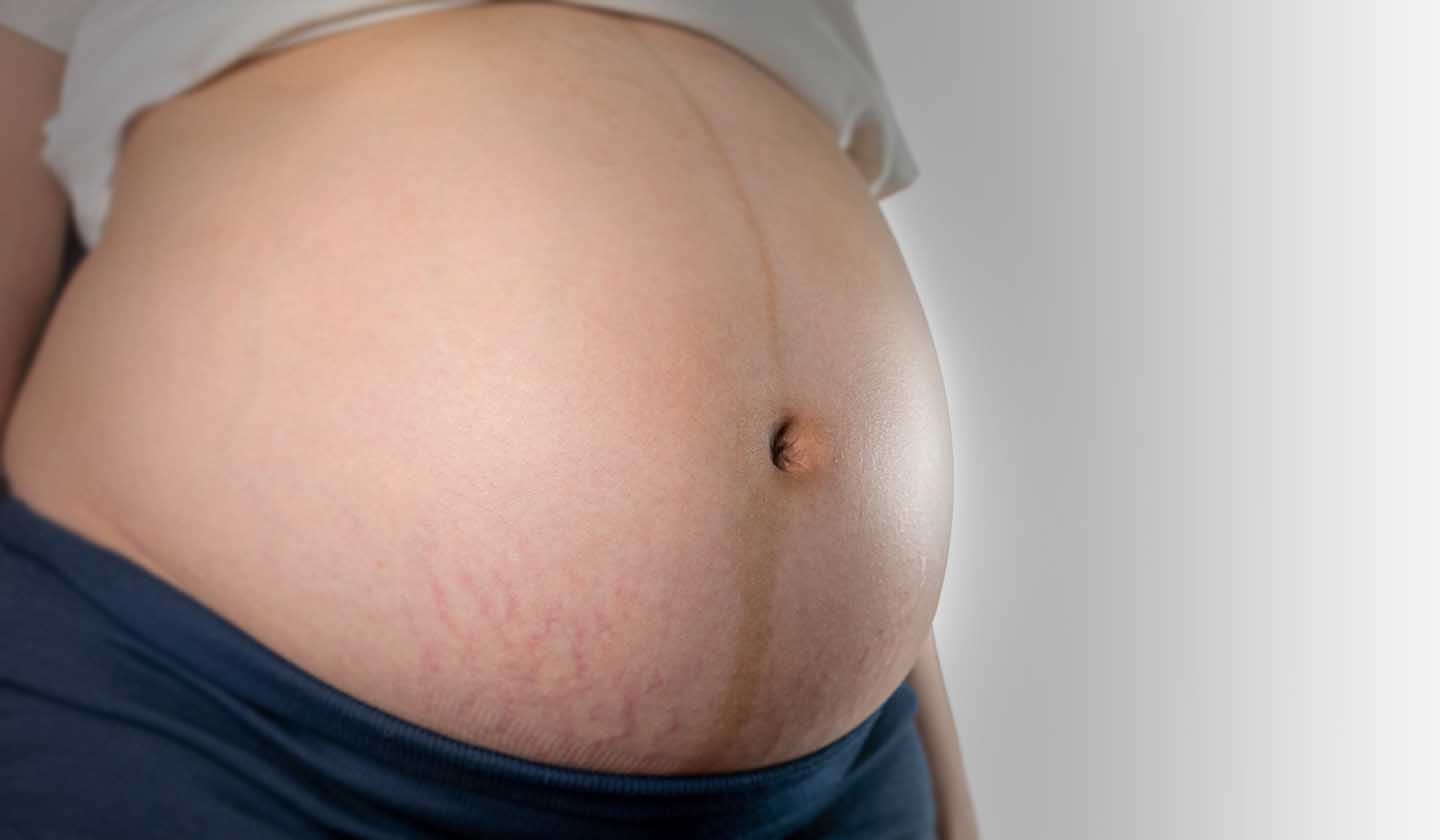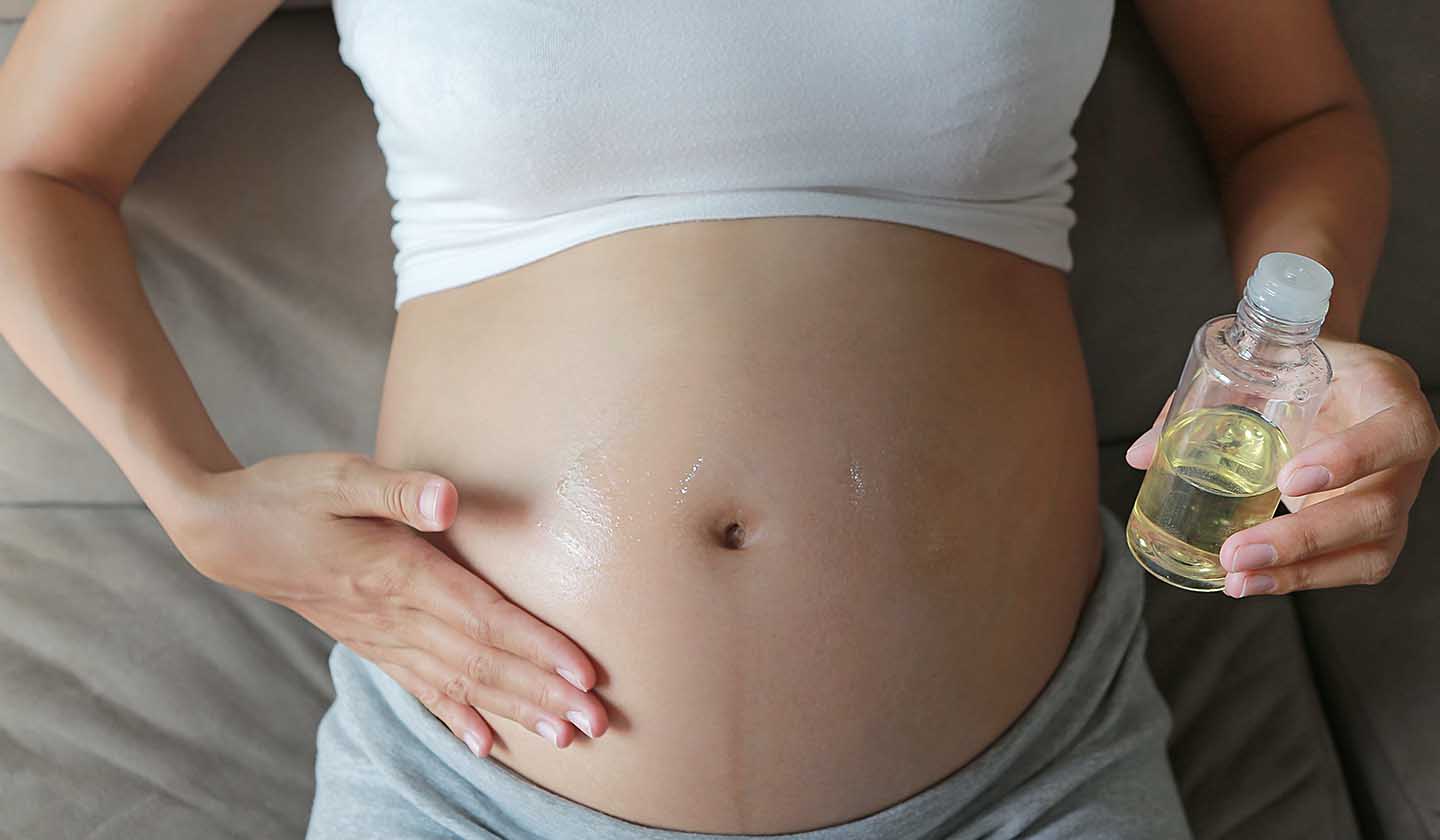Pregnancy
Avoid stretch marks from day one

Stretch marks appear due to the hormonal changes that occur during pregnancy, which can make the skin less elastic and toned, and to the sudden increase in weight typical of pregnancy, which can stretch the elastic fibres of the skin and favour their breakage. The lesions of the elastic fibres form scars, known as stretch marks. They usually appear in the third trimester of pregnancy and more frequently on the abdominal region; however, they can also appear in the thighs, groins, buttocks, arms, and breasts.
Although, from a clinical viewpoint, they are not a worrying health problem, from an aesthetic point of view, they can affect women's self-esteem.

Factors associated with the appearance of stretch marks
- Hormonal changes
- First pregnancy
- Age
- Baby’s weight
- Weight gain during pregnancy
- Genetic history

How to prevent stretch marks
- Adopt a balanced diet with fruits and vegetables, rich in vitamins C and E to help maintain the structure and elasticity of the skin.
- Avoid sudden weight gain.
- Drink plenty of water to keep your skin hydrated.
- Protect yourself from sun exposure as the sun destroys the skin's collagen.
- Use daily lotions or creams appropriate for stretch marks, rich in moisturising oils and vitamin E.
Apply the products in all regions where stretch marks may appear, namely, abdomen, breasts, and thighs.
It is advisable to start applying anti-stretch mark products as soon as you start to notice your baby bump; also, you should continue to apply the products after giving birth to help to restore the abdominal elasticity.

Tips on how to apply the cream
- Belly - apply the cream gently in a circular motion, clockwise around the navel.
- Breasts - gently spread the cream between the armpits and the sternum.
- Thighs, hips, and buttocks - apply the cream firmly from bottom to top.
Sources
iSaúde
Farmácia Distribuição Magazine






